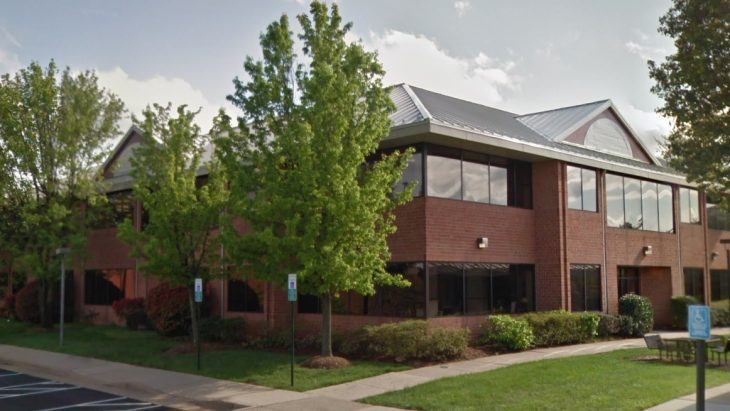Prince William County Community Services

About Prince William County Community Services
You’ll find Prince William County Community Services in Manassas, Virginia. It’s about 30 miles outside of Washington, D.C. It’s in the Sudley North Government Center. This public agency provides outpatient services for adults and youth battling substance use disorder, serious mental health conditions and those with dual diagnoses.
Medication Assisted Treatment (MAT)
One thing that caught my eye is that they offer MAT. With MAT, you can address the physical and mental symptoms of quitting substances, like alcohol and opioids. This approach combines FDA approved medications with proven therapeutic interventions.
Medications like Suboxone and methadone help you manage withdrawal symptoms and cravings so you can focus on recovery. You also participate in group and individual therapy, psychiatric services, peer support and case management.
Same Day Access for All
Another great feature I noticed was that they provide same day assessments. You can access substance use and mental health assessments without an appointment. These services are available on a first come, first served basis, Monday through Thursday from 8:00 a.m. to 2:30 p.m. With same day access, you can start recovery as soon as possible.
Their intensive community based services also caught my eye. If you have a serious mental illness or co-occurring disorder, you can access in depth treatment and case management.
They provide services within the community and focus on decreasing legal system involvement, preventing psychiatric hospitalizations, and maximizing independence. Mental health skill building, community case management and assertive community treatment are available.
Job Training for a Sober Future
I also think it’s beneficial that they provide vocational rehab. You can participate in psychosocial rehabilitation and supported employment to build a solid recovery foundation. They offer employment assistance, including vocational assessments, job search assistance and ongoing support to maintain employment.
| Levels of Care | Detox Service Setting | Programs | Payment Options | |||
|---|---|---|---|---|---|---|
|
In outpatient therapy, you’ll attend therapy sessions several times each week while living at home. This is ideal if you have a strong support system and a lower risk of relapse. Outpatient treatment offers flexibility to maintain work, school or family obligations. |
Dual diagnosis programs address substance use disorders and co-occurring mental health conditions simultaneously. This integrated approach to care improves the likelihood of long term recovery and stability by addressing the root causes of addiction. |
|||||
|
Outpatient detox gives you access to medically supervised withdrawal services while still allowing you to live at home. You’ll attend a clinic for treatment and monitoring. This flexible option is suitable for those with mild to moderate withdrawal symptoms who have strong support systems. |
||||||
|
Adult programs address the substance use and life challenges specific to adults. Therapists can deliver sessions in individual, group and family settings. Services often include job support and life skills training in a structured environment. |
Alcohol detox programs offer medical support to help individuals withdraw safely from alcohol. Your care team may use medications to ease your symptoms and provide medical monitoring to address complications. |
Drug detox programs support individuals who are withdrawing from addictive substances like cocaine and heroin. Medical support helps you manage symptoms in a controlled and safe environment so you can achieve initial sobriety. |
Men's programs address substance use while also considering the social pressures, family roles and mental health concerns that are specific to men. You’ll learn healthy coping mechanisms as you build emotional resilience and develop communication skills. |
Opioid detox uses medications to ease severe withdrawal symptoms. It also includes medical supervision to help you manage potential complications. These services allow you to stabilize and begin a recovery plan. |
Women's programs offer a safe and supportive space to focus on gender specific issues such as trauma, family roles and mental health conditions. Therapists tailor the sessions to address women's needs and foster empowerment in a healing and nurturing environment. |
Young adult programs are designed for individuals who are transitioning into adulthood. Topics of discussion typically include identity, independence and peer relationships. Providers may also offer life skills training and career support. |
|
Medicaid
|
Medicare
|
Self Pay
|
Levels of Care
In outpatient therapy, you’ll attend therapy sessions several times each week while living at home. This is ideal if you have a strong support system and a lower risk of relapse. Outpatient treatment offers flexibility to maintain work, school or family obligations.
Dual diagnosis programs address substance use disorders and co-occurring mental health conditions simultaneously. This integrated approach to care improves the likelihood of long term recovery and stability by addressing the root causes of addiction.
Detox Service Setting
Outpatient detox gives you access to medically supervised withdrawal services while still allowing you to live at home. You’ll attend a clinic for treatment and monitoring. This flexible option is suitable for those with mild to moderate withdrawal symptoms who have strong support systems.
Programs
Adult programs address the substance use and life challenges specific to adults. Therapists can deliver sessions in individual, group and family settings. Services often include job support and life skills training in a structured environment.
Alcohol detox programs offer medical support to help individuals withdraw safely from alcohol. Your care team may use medications to ease your symptoms and provide medical monitoring to address complications.
Drug detox programs support individuals who are withdrawing from addictive substances like cocaine and heroin. Medical support helps you manage symptoms in a controlled and safe environment so you can achieve initial sobriety.
Men's programs address substance use while also considering the social pressures, family roles and mental health concerns that are specific to men. You’ll learn healthy coping mechanisms as you build emotional resilience and develop communication skills.
Opioid detox uses medications to ease severe withdrawal symptoms. It also includes medical supervision to help you manage potential complications. These services allow you to stabilize and begin a recovery plan.
Women's programs offer a safe and supportive space to focus on gender specific issues such as trauma, family roles and mental health conditions. Therapists tailor the sessions to address women's needs and foster empowerment in a healing and nurturing environment.
Young adult programs are designed for individuals who are transitioning into adulthood. Topics of discussion typically include identity, independence and peer relationships. Providers may also offer life skills training and career support.
Contact
Nearby Detox Centers

Building 2
Newport News, VA 23602

Fairfax, VA 22030

Arlington, VA 22203

